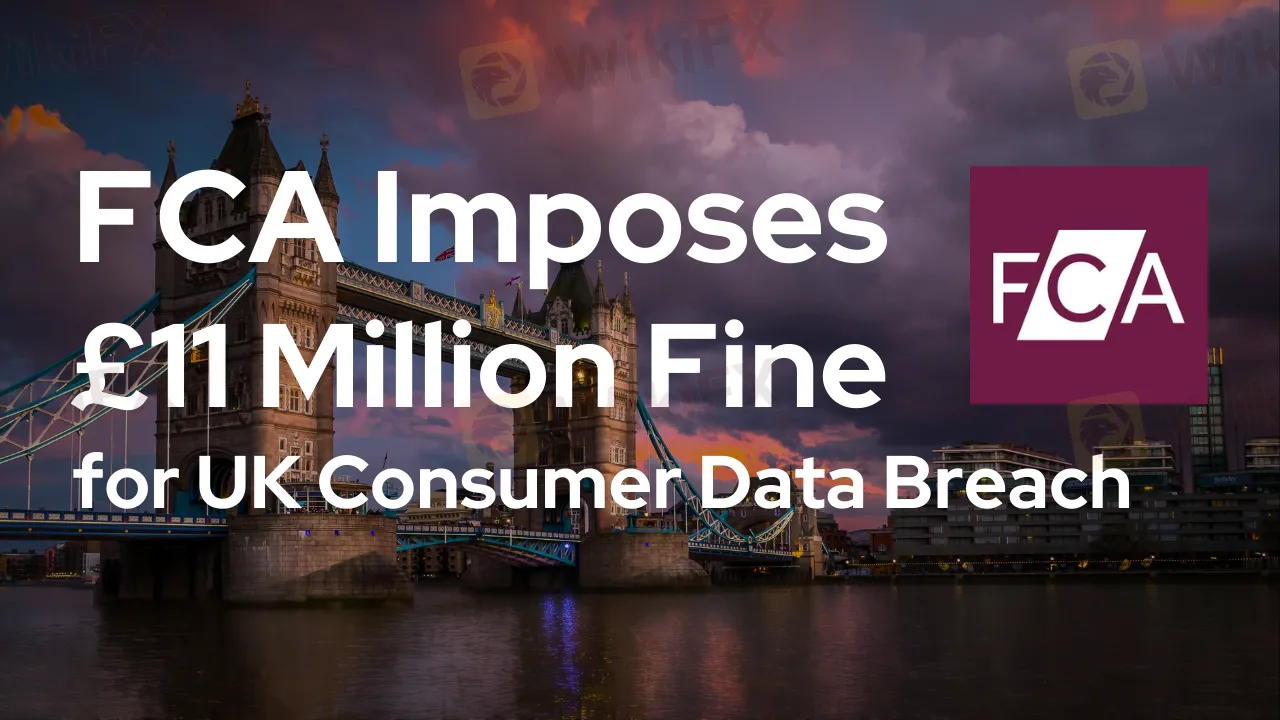简体中文
繁體中文
English
Pусский
日本語
ภาษาไทย
Tiếng Việt
Bahasa Indonesia
Español
हिन्दी
Filippiiniläinen
Français
Deutsch
Português
Türkçe
한국어
العربية
FCA Imposes £11 Million Fine for UK Consumer Data Breach
Abstract:Equifax Ltd fined £11 million by the FCA for a significant 2017 data breach affecting 13.8 million UK consumers. The oversight resulted from mismanaged outsourcing and neglecting known security vulnerabilities. The breach revealed names, birthdates, and other personal data, stressing the importance of robust data protection in the evolving digital world.

Equifax Ltd has been fined £11 million by the UK's Financial Conduct Authority (FCA) in a major measure to safeguard customers' personal data. This judgment is the result of the company's inability to safeguard the security of UK consumer data, which it had outsourced to Equifax Inc. in the United States.
The failure traces back to 2017 when Equifax Inc. experienced one of the worst computer breaches ever documented. Cyber hackers successfully accessed the personal information of almost 13.8 million UK customers as a result of Equifax's negligence. Names, birthdates, phone numbers, login passwords, certain credit card details, and home addresses were among the data breaches.
The critical aspect to note here is that the breach was avoidable. Equifax did not categorize its ties with its parent company as 'outsourcing', which led to a glaring lapse in supervising how the shared data was safeguarded. Equifax Inc. had known vulnerabilities in its security systems, but adequate actions were not taken to shield UK consumers' data.

Adding salt to the wound, Equifax Ltd was left in the dark about the breach concerning UK consumers for a whole six weeks post the discovery by Equifax Inc. The UK entity only got wind of the breach five minutes before its announcement by the US parent company. This timing disparity resulted in Equifax being overwhelmed by the influx of complaints and subsequently delayed reaching out to its UK customers.
Post the breach, Equifax's public statements further muddied the waters.
Their disclosures on the breach's implications miscommunicated the true extent of affected UK consumers. To worsen matters, the company didn't maintain rigorous quality assurance checks for post-breach complaints, leading to multiple complaints being improperly addressed.
Therese Chambers, Joint Executive Director of Enforcement and Market Oversight at the FCA pointed out the intrinsic duty of financial institutions to protect consumer data, saying, Financial firms possess customer data that's a prime target for criminals. The onus is on them to safeguard it.
Equifax's reaction to the breach only exacerbated their initial failure.
She further emphasized the ever-present threat of identity theft, urging companies to adhere to the highest data protection standards, given the relentless evolution of cyber threats.
Jessica Rusu, FCA's Chief Data, Information, and Intelligence Officer, stressed the increasing relevance of cybersecurity and data protection in ensuring the robustness of financial services. She mentioned, “Beyond just technical responsibilities, firms carry an ethical obligation in handling consumer information.”
As the digital landscape evolves, and threats become more sophisticated, it's evident that companies, big or small, must prioritize data protection and ensure that any outsourcing decisions are backed by stringent oversight and security measures.

Disclaimer:
The views in this article only represent the author's personal views, and do not constitute investment advice on this platform. This platform does not guarantee the accuracy, completeness and timeliness of the information in the article, and will not be liable for any loss caused by the use of or reliance on the information in the article.
Read more

Why More People Are Trading Online Today?
Discover why online trading is booming with tech, AI, and a push for financial freedom. From stocks to crypto, it’s a thrilling hustle for all.

SEC Ends Crypto.com Probe, No Action Taken by Regulator
The SEC has closed its investigation into Crypto.com with no action taken. Crypto.com celebrates regulatory clarity and renewed momentum for the crypto industry.

Bitpanda Secures Full Broker-Dealer License in Dubai
Bitpanda has officially obtained a full broker-dealer license from the Dubai Virtual Assets Regulatory Authority (VARA), marking a significant milestone in its international expansion. This approval, which follows preliminary authorization granted three months earlier, enables the European digital asset exchange to introduce its comprehensive suite of virtual asset services to investors in the United Arab Emirates (UAE).

Interactive Brokers Expands Crypto Trading with Solana, XRP, Cardano, and Dogecoin
Interactive Brokers adds Solana, XRP, Cardano, and Dogecoin to its platform, enabling U.S. and U.K. clients to trade crypto 24/7 with low fees.
WikiFX Broker
Latest News
Why Are Financial Firms Adopting Stablecoins to Enhance Services and Stability?
Experienced Forex Traders Usually Do This Before Making a Lot of Money
Octa vs XM:Face-Off: A Detailed Comparison
When High Returns Go Wrong: How a Finance Manager Lost RM364,000
Bridging Trust, Exploring Best—WikiEXPO Hong Kong 2025 Wraps Up Spectacularly
Interactive Brokers Expands Crypto Trading with Solana, XRP, Cardano, and Dogecoin
Fidelity Investments Explores Stablecoin Innovation in Digital Assets Sector
Why More People Are Trading Online Today?
SEC Ends Crypto.com Probe, No Action Taken by Regulator
Broker Comparison: FXTM vs XM
Currency Calculator







